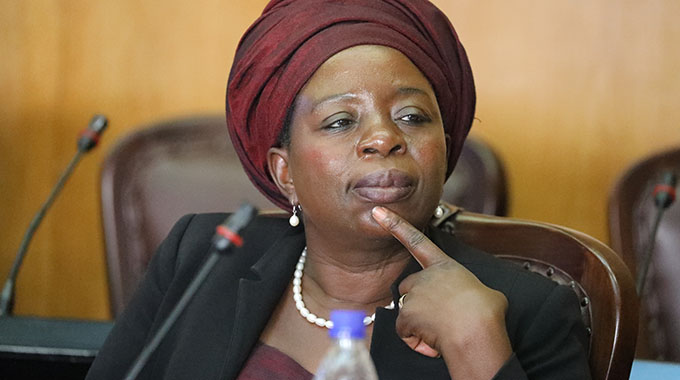Editorial Comment: The real, crying shame about sanctions

There is a heart-wrenching video of a doctor breaking down in front of cameras over the situation that doctors are facing at public hospitals where they lack medicines and equipment.
Because of lack of vital equipment, surgeries are poorly executed and fatalities tend to increase. For their own part, doctors in Zimbabwe are not fantastically well paid, a situation that is affecting everyone in Zimbabwe due to the prevailing macro-economic environment.
Because of the bad economic conditions, no one in Zimbabwe — especially the majority in the civil service and informal practice — no one really has enough. It is a story that has been with us for the past two decades when Zimbabwe became a target of Western sanctions, as the United States, the European Union and their allies such as Canada and Australia sought to leverage their economic power over Zimbabwe to change behaviour of the ruling elite in the Southern African country.
Zimbabwe, a former British colony, had its economy tied historically to the West; that is, from numbers and matrices of measurements to markets.
Additionally, it got budgetary and developmental support from individual Western countries and multilateral institutions. When Zimbabwe was placed under sanctions, the majority of trade and commerce with the West was stopped, as did developmental and budgetary aid which had accounted to as much as 45 percent of the country’s requirements.
Indeed, US sanctions specifically prevented US nationals and companies from trading with “designated” or “specified” individuals and entities from Zimbabwe. We were told that the sanctions on individuals and entities were “targeted”.
The catch, is, however, that such individuals and corporates were the main economic players that defined the economic model of Zimbabwe where there was and still is, a conflation between political and economic interests. Further, public entities and State-owned enterprises were placed under sanctions both as separate bodies or by the extension of executives that led them.
Not to forget that, the President of the Republic himself as the business and political face of the country was also placed under sanctions. There has been the dishonest narrative that sanctions only affect the people on the list and not ordinary people, which even the local embassy of the US frantically tries to push to this day. We have previously tested and debunked this lie — as indeed the explanation above that there is an undeniable conflation between the business and State in the Zimbabwean model serves. The truth is that sanctions were meant to collapse the business of State and the state of business. Sanctions were meant to collapse Zimbabwe.
It brings to the fore discussions about the nature and impact of sanctions and how they deprive people of their rights to health, food, drinking water, education, shelter, among other needs recognised by the United Nations.
In discussions on this matter it has been consistently been pointed out that sanctions are a blunt instrument that pulverises the poor and vulnerable.
Those who impose sanctions know this: actually they know that ruling elites in business and politics are barely touched. What will touch them is the sheer cost of humanitarian disaster, deaths and destruction. It has been correctly argued that sanctions have caused more deaths than military warfare. Sanctions cannot be pro-poor people. They are anti-people. Those who impose sanctions want poor people to suffer and die or use the little energy left in them to overthrow governments that imposers of sanctions do not like.
It is such an evil scheme. This is the evil wrought by the United States and European Union on the people of Zimbabwe. We say this without fear or favour.
What is disheartening is that these hostile policies are pushed and promoted by some of our compatriots and evil Zimbabweans who work at the Western embassies who wish to prolong the stand-off to remain relevant. It is clear that the other side of punishing poor countrymen and women is the enrichment of pro-Western elites in the opposition and civil society who live off dirty money.
They are paid to justify why the West should continue punishing poor people. Their hearts are hardened and evil. It is such a burning shame. Time shall come when these people are called to account for their anti-people actions. When we see that doctor breaking down for witnessing the suffering of poor people — never mind her individual emotional state — she is merely crying for her country that has been under attack for the past two decades.
The suffering is more than bombs raining in cities and towns and hamlets, which the US and its friends deploy in other times and places. Zimbabweans are suffering because of sanctions imposed by the US and its allies and that is how the US and its allies want it.
The counter-narrative that Zimbabwe is in its present state because of the quality and actions of its leaders is diversionary. Sanctions are meant to pulverise people — a whole nation — into submission.
The picture of a crying doctor speaks of this humanitarian disaster and should be read in the correct context.









Comments